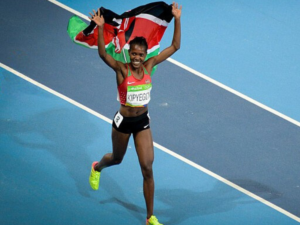Sports have long been a source of pride, unity, and inspiration for Kenya. The country’s achievements in athletics, from record-breaking marathons to world-renowned runners, have put Kenya on the global map. However, to sustain and expand this legacy, it is crucial for Kenya to prioritize and invest more in sports. Here’s why this investment is necessary and how it can benefit the nation.
1. Enhancing National Unity and Identity
Sports have the unique power to unite people across diverse backgrounds, languages, and regions. When athletes represent Kenya in international competitions, the entire nation rallies behind them, creating a sense of pride and shared identity. This unity can be strengthened through greater investment in sports infrastructure, training facilities, and community programs. By doing so, sports can become a vehicle for national cohesion, bridging gaps between communities and fostering a sense of belonging.

2. Promoting Health and Wellness
With the rise of lifestyle diseases such as diabetes and hypertension, promoting an active lifestyle has become more crucial than ever. Investment in sports can encourage Kenyans, especially young people, to adopt healthier habits. Developing sports facilities, organizing local leagues, and supporting school sports programs can motivate more people to get involved in physical activities. In the long run, this would reduce the burden on the healthcare system and improve the overall well-being of the population.
3. Economic Opportunities and Job Creation
Sports can significantly contribute to economic growth by creating job opportunities and generating revenue. From coaching, event management, and sports tourism to merchandise sales, the sports industry has a broad economic impact. Investing in local sports academies and leagues can also nurture young talent and position Kenya as a hub for sports tourism. Events such as marathons, football matches, and rugby tournaments can attract international visitors, boosting the hospitality sector and local businesses.
4. Nurturing Talent and International Competitiveness
Kenya’s athletic prowess is undeniable, but there is untapped potential in other sports like football, rugby, basketball, and volleyball. By expanding investment beyond traditional athletics, Kenya can develop well-rounded athletes who can compete at international levels in various disciplines. This requires improved access to training facilities, coaching, and scholarships for young athletes. It also means supporting the professionalization of sports leagues, which can attract more sponsorships and partnerships.
5. Social Development and Empowerment
Sports have the potential to empower young people, especially in marginalized communities. By investing in sports programs, the government can provide an alternative pathway for youth, keeping them engaged in constructive activities and away from negative influences like crime and drug abuse. Sports can teach valuable life skills such as discipline, teamwork, leadership, and resilience, helping young people to thrive both on and off the field.
Investing in sports is more than just supporting athletes; it is about building a healthier, more united, and economically vibrant Kenya. By prioritizing sports, the country can unlock a wealth of opportunities that benefit the entire nation, from economic growth to social cohesion. It is time for Kenya to elevate its commitment to sports, ensuring that the next generation of athletes has the resources and support needed to shine on the global stage.